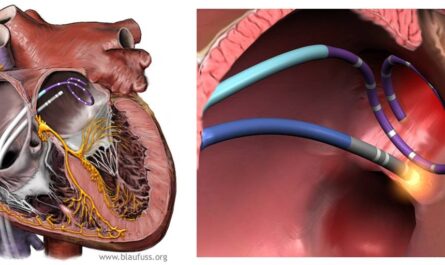A groundbreaking discovery has revealed that a recently identified genetic mutation could be the underlying cause of some perplexing cases of osteoporosis, including those affecting young individuals. Idiopathic osteoporosis (IOP) is a condition that primarily affects younger adults and often leads to bone fractures, even in patients who have no history of physical trauma.
Associate Professor Frances Milat, the Head of Hudson Institute’s Metabolic Bone Research Group, comments on the challenges surrounding the diagnosis and treatment of IOP due to several factors. These factors include a lack of understanding of the underlying cause, limited research in the field, and the absence of management guidelines.
Patients diagnosed with IOP have been found to exhibit abnormal bone structure. It is hypothesized that these patients may possess an undisclosed genetic mutation responsible for the development of their severe osteoporosis and frequent bone fractures. A/Prof Milat, who also serves as the Deputy Director of Endocrinology at Monash Health, affirms that a novel RUNX1 genetic variant was identified in a young male patient. This variant potentially induces changes in bone structure, contributing to the manifestation of severe osteoporosis. The patient had endured multiple bone fractures with little or no trauma.
A/Prof Milat highlights the significance of this genetic mutation, suggesting that it may be the root cause of certain unexplained cases of severe osteoporosis in young adults. This groundbreaking finding opens up new avenues for effective care and therapy options.
The research was published in the esteemed medical journal JBMR Plus. Dr. Tomasz Block, an Advanced Trainee in Endocrinology at Monash Health and the paper’s first author, emphasizes the importance of identifying the underlying genetic causes of osteoporosis. Doing so enables healthcare professionals to provide appropriate preventive care for patients, such as surveillance and targeted treatment to reduce the risk of future fractures.
Dr. Block argues that this study provides crucial insights into a potential genetic factor contributing to unexplained severe osteoporosis, ultimately leading to the possibility of developing targeted therapies. In the case described, it is believed that this specific genetic mutation impairs bone formation. Consequently, the most optimal treatment approach for this patient would involve medications that stimulate the regeneration of new bone tissue.
Overall, this groundbreaking discovery paves the way for improved understanding, diagnosis, and treatment of severe osteoporosis cases, particularly those affecting young individuals. By uncovering the genetic mutations responsible for the development of this debilitating condition, healthcare professionals can enhance patient care and deliver targeted therapies to improve bone health and reduce fracture risks. This research represents a significant step forward in the fight against osteoporosis and offers hope to patients suffering from this devastating bone disorder.
Note:
- Source: Coherent Market Insights, Public sources, Desk research
- We have leveraged AI tools to mine information and compile it



